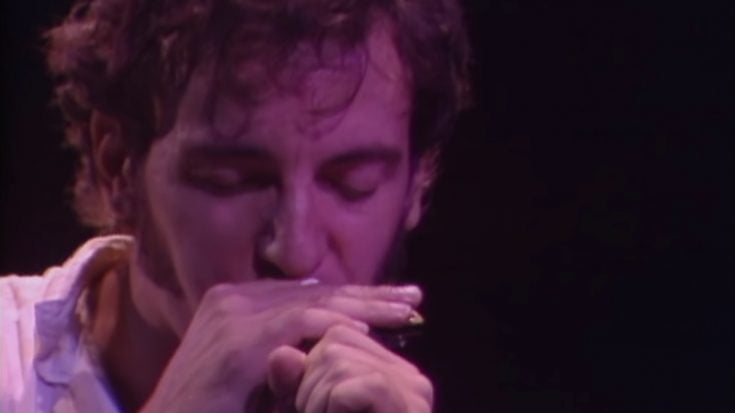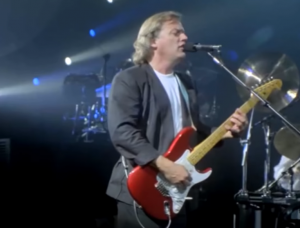Album Review: “Darkness On The Edge Of Town” by Bruce Springsteen

Bruce Springsteen live in 1980 - Bruce Springsteen / Youtube
The Boss’ 1978 catalog Darkness On The Edge Of Town was a breath of relief for the rock artist, seeing that he was stuck in a rut following a legal debacle with his ex-manager Mike Appel over the rights over recorded material. Springsteen saw a fruitful season on the songwriting period for the album, penning around 70 songs and recording 50 or more, with the leftovers being repurposed by other artists.
The album starts off with “Badlands”, which blows things off with its rich, symphonic rocker solution courtesy of a piano and organ duet, along with Springsteen’s guitar and a nifty sax solo in the mix. “Adam Raised A Cain” has the Boss showcase his impressive vocal range, from whimper-quiet to screaming in a matter of minutes, while being carried by the infectious bluesy progression. “Something In The Night” has a sing-along quality to it and is a curious cross between a ballad and rocker anthem, while “Candy’s Room” is a gritty rocker with themes of innocent romance in the lyric. Closing the album’s first side is “Racing In The Street”, a rather lethargic ballad that talks about a blue-collar worker’s passion with his wheels.
Just as the previous track brought you downers, “The Promised Land” energizes the run back with its pop-infused sound. “Factory” soon resurfaces with a theme inspired by Springsteen’s own father, while “Streets On Fire” gives off an intense and brooding vibe with its booming organ parts driving the arrangement. “Prove It All Night” is another feel-good rocker with excellent instrumental harmonies, while the album closer and title track “Darkness On The Edge Of Town” concludes the whole set with its powerful arrangement.
While not the most commercially successful Springsteen record around, Darkness On The Edge Of Town remains to be one of the most solid rock statements by the Boss. Bruce Springsteen’s artistic maturity begins to show at this stage and is reflective of his future musical endeavors beyond it.












